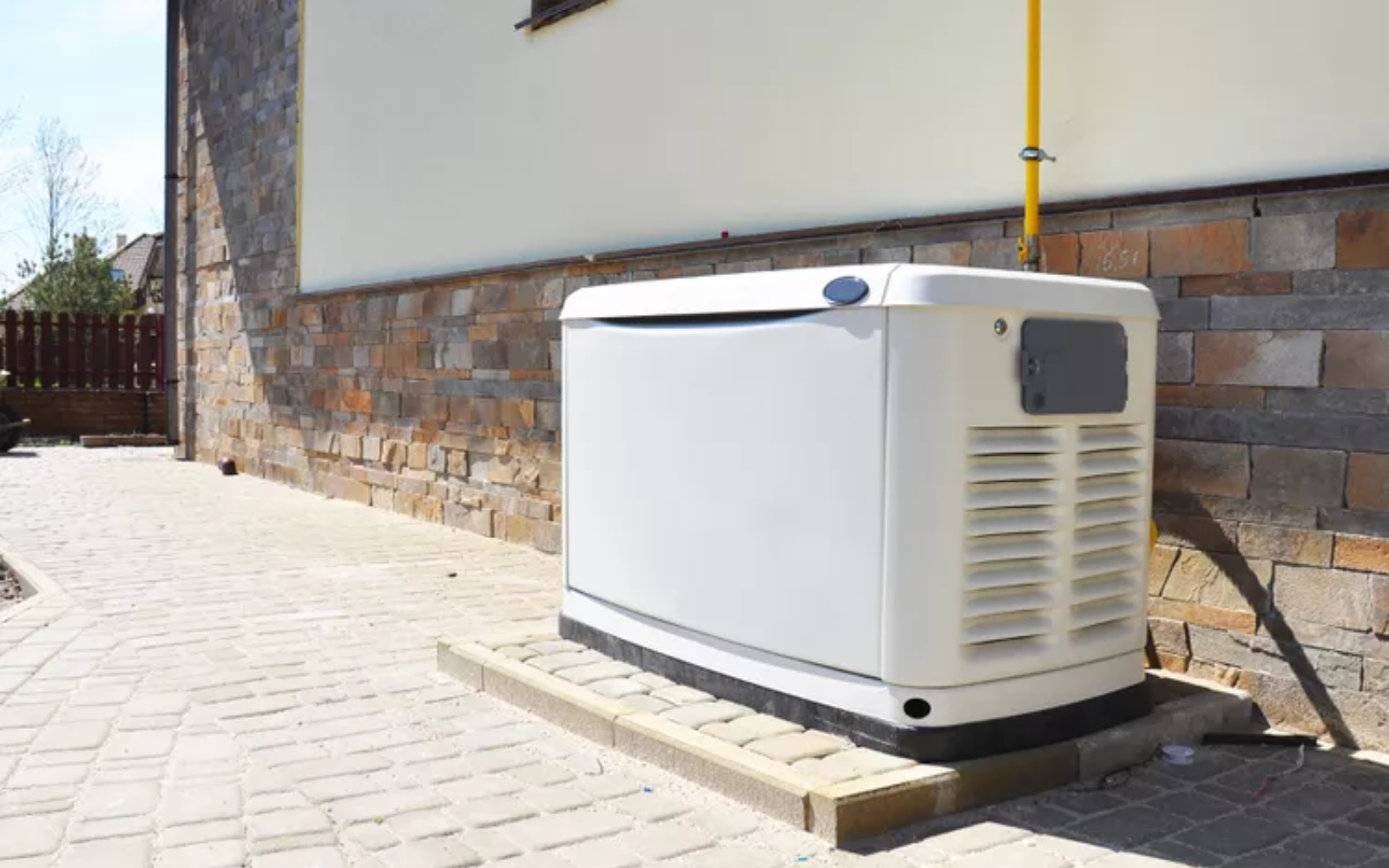Considering a Generator? It Could Boost Your Home’s Value
By Kristine Gill | Better Homes & Gardens
Looking for a way to improve your home’s value and marketability? A home generator can be a coveted feature in any home, providing homeowners peace of mind in the event of a natural disaster or power outage. “The primary ways in which a home generator can enhance a property’s value when it comes to resale value are protection, prevention, and practicality,” says Paige Hotchkiss, a realtor with Better Homes and Gardens Real Estate Wine Country Group. Learn how generators offer a solution that future buyers will find favorable, and how they can increase your home’s value.
The Benefits of a Home Generator
Home generators can be a huge lifesaver in the event of a natural disaster such as a hurricane, tornado, or even an earthquake. In these scenarios, your home might lose power for a few minutes or several days, and having a backup power source can be the difference in your family’s health and safety.
“When the power goes out, oftentimes people lose the use of their home security system, heating/cooling, and people who get their drinking water from a well are unable to pump water,” Hotchkiss says. “This means that your family is no longer protected from the elements or criminal activities.”
Joe Maxwell, a designated broker with Better Homes and Gardens Real Estate Pacific Commons, suggests hooking your generator up to key features in your home such as your refrigerator, well, and air conditioning or heat, depending on where you live. “I live in an area prone to power outages, so I have one out of convenience,” Maxwell says.
“Generators prevent losses of power production and/or power surges to electrical appliances, which can cause irreparable damages,” Hotchkiss adds. “It also prevents spoiled food costs and further house damages like frozen pipes in the winter.”
Generators are highly desirable in parts of the country prone to these types of events, but they’re also helpful if you live in an area that experiences frequent power outages for other reasons.
A home generator doesn’t just keep the lights on in an emergency. Maxwell says they also:
- Keep food fresh: Generators can power your home’s fridge and freezer in a pinch.
- Maintain your home’s security features: Your security cameras and doorbells will continue to send alerts during this pivotal time with backup power in place.
- Power your well water system: Many homes rely on electricity to power their water source, and a generator ensures a steady flow.
- Keep you comfortable: Outages during extreme heat or cold can be dangerous at worst or uncomfortable at best, and a generator can keep your home at the right temperature.
- Allow you to stay in your home: Having a home generator can mean the difference between booking a hotel or staying with friends and family versus staying at home.
- Power important health features: If you rely on electricity to power your nebulizer or CPAP machines or keep medication refrigerated, you understand how important it is to have a backup source in place.
Generators Growing in Popularity
More and more Americans are investing in generators as problems such as power outages increase in frequency and intensity. “Many people have them here,” says Maxwell, who works in Washington state. “Maybe 10% of homeowners have added a generator, but the new construction homes often have a generator built in.”
Hotchkiss agrees, saying they’re also becoming more popular in California. “In recent years, our community has had numerous wind events and some snow, causing more frequent outages,” she says. “This has opened the eyes of our buyers and sellers and many have added it to their ‘must-haves’ list when it comes to shopping for their new home.”
There are several types of home generators, which means there’s a good solution for your price range and needs, including portable and permanent models.
Portable generators can be easily moved and typically run on gasoline or propane. Standby generators are permanently installed in your home and directly connected to the home’s electrical system. They will automatically kick in in the event of an outage for continuous power.
Diesel generators require a different fuel source and are prized for their high power capacity in areas where these outages are frequent and long-lasting.
There are also solar and wind generators, which use more sustainable—and free—power sources. These of course won’t work in all regions. Finally, hybrid generators will offer continuous power using a mix of sources: wind, solar, and gas.
“The easy accessibility and operation of home generators is a lot more user-friendly than having to set up a mobile generator and 100 extension cords,” Hotchkiss says. “It’s also better than being without power for extended amounts of time!”
The average cost of a home generator in the United States varies by the type of generator but all typically fall in the range of a few hundred dollars to a few thousand. There are some generators that can cost tens of thousands, but this depends on the type of generator and the brand.
“It’s extremely important to reach out to your local generator company to get an expert to help determine the power requirements for your particular home and have them install it with proper local requirements and permitting processes,” Hotchkiss says.



